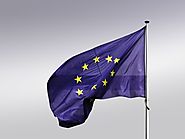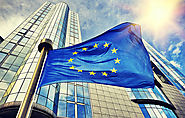-
About
- About Listly
- Community & Support
- Howto
- Chrome Extension
- Bookmarklet
- WordPress Plugin
- Listly Premium
- Privacy
- Terms
- DMCA Copyright
- © 2010-2024 Boomy Labs

 i- SCOOP
i- SCOOP
Listly by i- SCOOP
Source: https://www.i-scoop.eu/gdpr/

The road to compliance begins with a meticulous audit of current procedures affecting personal data.

We provide GDPR, ePrivacy, LGPD, and CCPA compliant cookie consent managing solutions for websites. In a few minutes, you can set up compliant cookie banners and privacy policies for your website, and you can rebrand it into your favorite style.
Stop worrying about your website’s compliance with international privacy regulations, we handle that for you. Simply select the third-party services you use, upload our scripts to your website, and you are good to go.

Members of the European Parliament voted in favor of the EU’s first ever cyber security protection regulation on July 6, 2016. Under the new network and information security directive, crucial sectors, such as energy, transport and banking, must ensure they are able to resist a cyber-attack. In addition to boosting cyber security cooperation between EU countries, the new directive will require critical sectors and digital service providers, such as Amazon and Google, to report serious security breaches to national authorities within 72 hours of the incident or face penalties of up to 4% of total revenues.

The General Data Protection Regulation 2016 (GDPR) and the Network and Information Security Directive 2016 (NISD or Cybersecurity Directive) are both EU pieces of legislation. The GDPR will apply automatically in EU Member States from 25 May 2018, whereas NISD requires Member States to introduce implementing legislation by 9 May 2018.

Data security plays a prominent role in the new General Data Protection Regulation (GDPR). Compared to the current Data Protection Act (DPA), the GDPR imposes stricter obligations on organisations with regard to data security while simultaneously offering more guidance on appropriate security standards.

The EU GDPR (General Data Protection Regulation) completely changes the way organizations handle their customers’ sensitive data.

When it comes to security expectations around protecting customer data, GDPR is very clear. What isn’t quite as clear is exactly how an organization should go about securing their data. The road to compliance might be different for every organization, but the end result should include methods for reducing the security vulnerabilities and new ways to track and report personal data access and processing.

The General Data Protection Regulations (GDPR) were introduced into EU law on May 25th 2018. The regulations were designed to give individuals in the EU control over their data by changing how the data can be collected, used, and stored by those who handle the information.
GDPR has been cited as the biggest change to EU personal data laws since 1995. While the regulations appear to ostensibly only apply to companies within the EU, any organisation which handles data which has been collected within the EU are not exempt from the reaches of GDPR, regardless of the location of their headquarters.

As data security requirements also exist under the Data Protection Directive (Directive 95/46/EC) many companies have already adopted technical and organisational security measures to protect personal data. However, these security requirements will be extended under the GDPR.

Any organisation that is required to comply with GDPR must train provide training to their employees and inform them of their responsibilities under the regulations. This article offers recommendations on how employee training courses should be run, and outlines some of the most important topics to be covered.

One of the most important aspects of ensuring that an organisation is GDPR-compliant is by implementing a rigorous and robust training program for all employees. Many data breaches occur due to employee negligence, such as leaving a laptop in a location in which it can be easily stolen or failing to lock important files in a secure drawer. Ignorance about basic IT safety practices may result in employees accidentally falling for phishing emails, which may result millions of files being stolen by a hacker.
Employees must understand their responsibilities under GDPR. The regulations require that all employees undergo training, although not necessarily to the same level. The amount of training that an employee undergoes may be tailored to their specific role. This article will provide some guidance on how to ensure employees are familiar with GDPR’s strict data security requirements and how they can fulfil their obligations to protect sensitive customer information.

A Brief Overview of the GDPR and the Need for Higher Privacy and Security Standards

Data security plays a prominent role in the new General Data Protection Regulation (GDPR) reflecting its symbiotic relationship with modern comprehensive privacy regimes. Compared to Directive 95/46/ec, the GDPR imposes stricter obligations on data processors and controllers with regard to data security while simultaneously offering more guidance on appropriate security standards. The GDPR also adopts for the first time specific breach notification guidelines.

Organizations must have a strong understanding of where their data resides and what data they posses to comply with the GDPR. They must be mindful of the right to be forgotten provision, for example, and the need to notify impacted parties within a reasonable window of time in the event of a breach.

What is the role of information security professionals in helping organisations to ensure they are compliant with the EU’s General Data Protection Regulation (GDPR) by 25 May 2018?

The General Data Protection Regulations came into effect on May 25th 2018, and have since had wide-reaching implications for many companies both within and outside the EU. The need for GDPR was clear; existing laws were not robust enough to deal with the rapid changes in technology. The creators of GDPR sought to introduce regulations to reduce the risk of data theft to a minimum.
